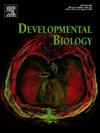在自闭症谱系障碍和神经多样性运动的背景下,教学生有效地评估科学证据并倡导研究。
IF 2.1
3区 生物学
Q2 DEVELOPMENTAL BIOLOGY
引用次数: 0
摘要
将社会相关话题与生物内容联系起来可以提高学生的参与度和理解力。自闭症谱系障碍(ASD)是一种越来越普遍的诊断,在发育生物学和社会正义之间有许多交叉的主题领域。在这里,我描述了我开发的两个练习,让学生有机会将科学过程的学习目标与现实世界的应用联系起来。首先,学生们通过评估Andrew Wakefield 1998年发表的一篇错误地将麻疹、腮腺炎和风疹疫苗接种与自闭症发展联系起来的文章,考察科学研究实践,并将科学证据与结论联系起来。其次,学生参加角色扮演练习,以了解在确定美国科学研究资金水平时涉及的多种观点和观点,包括了解神经多样性运动及其对建立ASD研究重点的影响。通过明确讨论适当的科学实践,分析科学不端行为和错误信息传播的后果,并展示学生如何利用他们的声音和投票来支持科学资助,我们可以让学生成为有知识、有能力、有科学素养的公民。本文章由计算机程序翻译,如有差异,请以英文原文为准。

Teaching students to effectively evaluate scientific evidence and advocate for research in the context of autism spectrum disorder and the neurodiversity movement
Connecting socially relevant topics with biological content can boost student engagement and comprehension. Autism Spectrum Disorder (ASD) is an increasingly prevalent diagnosis with a number of intersecting topic areas between developmental biology and social justice. Here I describe two exercises that I developed to engage students in learning opportunities that link scientific process learning goals with real-world applications. First, students examine scientific research practices and work on connecting scientific evidence with conclusions by evaluating the retracted 1998 article by Andrew Wakefield that falsely linked the measles, mumps and rubella vaccination with the development of ASD. Second, students participate in a role-playing exercise to learn about the multiple viewpoints and perspectives that are involved in determining funding levels for scientific research in the United States, including learning about the neurodiversity movement and its impact on establishing ASD research priorities. By explicitly discussing appropriate scientific practices, analyzing the consequences of scientific misconduct and the spread of misinformation, and demonstrating how students can use their voices and their votes to support science funding, we can prepare students to become knowledgeable, empowered, scientifically literate citizens.
求助全文
通过发布文献求助,成功后即可免费获取论文全文。
去求助
来源期刊

Developmental biology
生物-发育生物学
CiteScore
5.30
自引率
3.70%
发文量
182
审稿时长
1.5 months
期刊介绍:
Developmental Biology (DB) publishes original research on mechanisms of development, differentiation, and growth in animals and plants at the molecular, cellular, genetic and evolutionary levels. Areas of particular emphasis include transcriptional control mechanisms, embryonic patterning, cell-cell interactions, growth factors and signal transduction, and regulatory hierarchies in developing plants and animals.
 求助内容:
求助内容: 应助结果提醒方式:
应助结果提醒方式:


